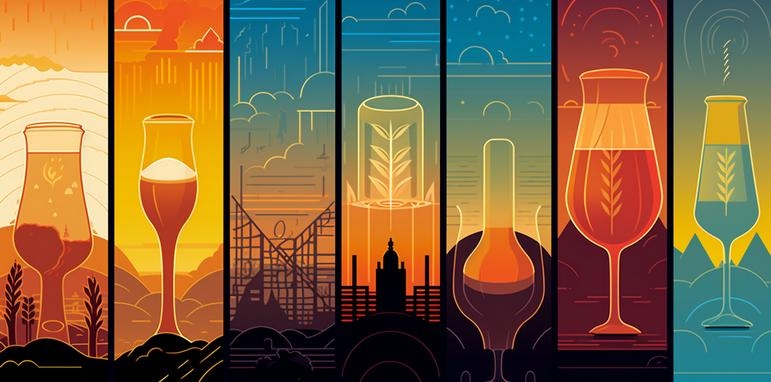Impact of Climate Change on Beer Production

A Toast to Brewing ChangesThe world of beer is much like a lively barroom conversation: sometimes bubbly, often frothy, and occasionally, a bit of a headache. As it turns out, the climate is joining the chat, and it’s bringing some unexpected guests. From hoppy IPAs to smooth stouts, our beloved brews are facing a brewing crisis—one that could leave beer enthusiasts twiddling their thumbs and staring at empty pint glasses. What’s Brewing with Climate Change?As the planet warms up faster than a keg at an outdoor party, the agricultural foundations of beer are under threat. Barley, hops, and water—the holy trinity of beer production—are all feeling the heat. Rising temperatures and erratic weather patterns are playing spoilsport, much like a potential third wheel crashing an intended romantic getaway.The increased warmth can lead to a shorter growing season, and while that might sound ideal for sunbathers, farmers are facing dry spells followed by torrential downpours. Imagine trying to find your favorite pub, only to be met with a weather forecast that reads “partly cloudy with a chance of chaos.” Barley: The Unsung HeroBarley, the unsung hero of beer, is experiencing its own drama. This grain, which is as crucial to beer as a bartender is to your weekend plans, prefers to grow in cooler climates. But, with rising temperatures, barley yields could take a nosedive. Farmers are left wondering if they should pivot to quinoa or find a way to equip barley with tiny air-conditioning units. Water, another critical ingredient, is also facing the heat—quite literally. Many regions that produce barley and hops are also regions known for their water scarcity. It’s a bit like trying to run a marathon without water while simultaneously being chased by a particularly thirsty lion. Hops vs. Heat: The Battle of the BitternessHops, the flavorsome flowers that impart bitterness and aroma, are feeling the pressure too. Rising temperatures can stress hop vines, ultimately reducing their yield and quality. When your hops throw a tantrum, the aroma and flavor profile of beer can change dramatically. Breweries may soon be faced with “hoppy” beers that taste more like “oops-y” beers. Additionally, the timing of hops' flowering can be thrown out of sync. Imagine planting a garden and having the sun and rain agree to take a vacation at the same time. Beer lovers everywhere may have to adjust to more subtle flavors, and that’s just not something that pairs well with a pretzel. Breweries Adapting: Creativity Under PressureThe good news is that brewers are notoriously resourceful. When the going gets tough, the tough get brewing—often with a new recipe or two. Many craft breweries are experimenting with alternative grains that can withstand higher temperatures. Instead of traditional barley, some are turning to grains like sorghum or millet, proving that innovation can be every bit as refreshing as a cold pint. Moreover, some breweries are implementing sustainable practices, such as rainwater harvesting and developing their own hop gardens. It’s like every brewer turned into a mini-cultivator ready to secure the future of liquid sustenance—without the need for a spade and straw hat, of course.Cheers to the FutureThe impact of climate change on beer production is significant, but the rising tide of change doesn't mean the end of our beloved brews. It’s a call to action for brewers and consumers alike to embrace sustainability, adapt to new agricultural realities, and perhaps most importantly, savor every sip of their favorite pints as if it might become a limited edition. With creativity and resilience at the helm, the industry can navigate these challenges—hopefully avoiding the fate of the dodo bird. So, let’s continue to raise our glasses, support local artisans, and toast to a future where climate change may influence the beers we drink, but never extinguish our love for them! Hopping into TomorrowIn the end, while the landscape of beer may be changing, one thing remains clear: the love for this age-old beverage is unwavering. With every challenge comes the potential for innovation and creativity. Here’s to navigating the ups and downs of climate change, one frothy pint at a time!
|
|







